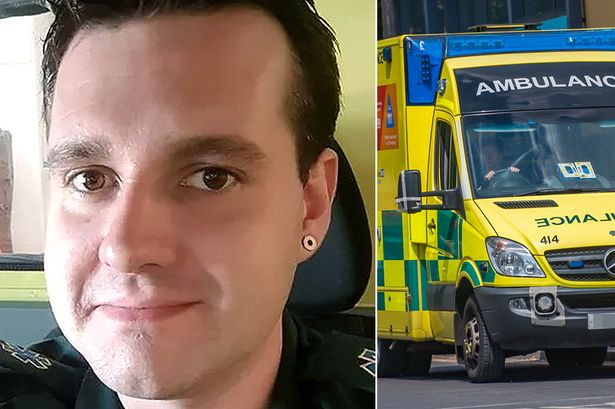The theft of £3,000 worth of vital medical equipment, including an oxygen canister and a heart monitor, from an ambulance storeroom by Rainer Morgan-Kavanaugh represents a grave violation of public trust and a potentially life-threatening disruption to emergency medical services. This act deprives paramedics of essential tools needed to provide immediate and effective care to patients in critical conditions. The missing oxygen canister, for instance, could have meant the difference between life and death for a patient experiencing respiratory distress, while the absence of a heart monitor hampers the ability to assess cardiac function and make informed decisions about treatment. Morgan-Kavanaugh’s actions directly jeopardize the health and safety of the community, undermining the very infrastructure designed to protect it. The financial loss, while significant, pales in comparison to the potential human cost of this crime.
The theft’s repercussions extend beyond the immediate absence of the stolen equipment. It creates a ripple effect within the emergency medical services, potentially delaying response times and compromising the quality of care. Ambulances without essential equipment may be forced to return to base to restock, leaving other emergencies unattended. Paramedics may be forced to improvise or rely on less effective alternatives, potentially increasing the risk of complications or adverse outcomes for patients. Furthermore, the theft necessitates the diversion of resources to replace the stolen items, placing an additional financial burden on the already strained healthcare system. This diversion of funds could impact the availability of other essential services or delay crucial upgrades to equipment and facilities.
The nature of the stolen items highlights the particularly callous nature of this crime. Oxygen canisters and heart monitors are not luxury items; they are fundamental components of emergency medical care. They are the tools paramedics rely on to stabilize patients, manage life-threatening conditions, and provide immediate interventions that can significantly improve patient outcomes. The theft of these items demonstrates a blatant disregard for the well-being of others and a shocking indifference to the potential consequences of such actions. Morgan-Kavanaugh’s act displays a lack of empathy and a complete disregard for the potential suffering caused by the absence of this vital equipment.
The investigation into this theft should prioritize not only the recovery of the stolen equipment but also a thorough understanding of the circumstances surrounding the crime. This includes determining how Morgan-Kavanaugh gained access to the storeroom, identifying any potential accomplices, and assessing the security measures in place to prevent future incidents. A comprehensive investigation will help ensure accountability for the crime and inform strategies to improve security protocols and safeguard vital medical resources. Furthermore, understanding the motivations behind the theft may offer insights into preventative measures that could address the underlying causes of such criminal activity.
Addressing the broader implications of this theft requires a multi-pronged approach. Strengthening security measures at medical facilities and ambulance stations is crucial to deter future thefts and protect essential equipment. This could involve implementing more robust access control systems, enhanced surveillance, and regular inventory checks. Simultaneously, raising public awareness about the importance of respecting and protecting emergency medical services is essential. This includes educating the public about the potential consequences of theft and vandalism, fostering a sense of shared responsibility for the safety and well-being of the community.
Beyond security measures and public awareness campaigns, it’s important to address the underlying social and economic factors that may contribute to such crimes. Providing support and resources to individuals struggling with financial hardship or substance abuse can help prevent desperate acts driven by necessity or addiction. Furthermore, promoting a culture of respect and appreciation for healthcare professionals and the vital services they provide is crucial. By valuing and protecting emergency medical services, we can ensure that paramedics have the tools they need to save lives and provide essential care to those in need. The theft committed by Rainer Morgan-Kavanaugh underscores the vulnerability of these essential services and the urgent need to strengthen their protection.














